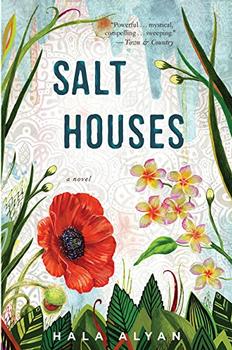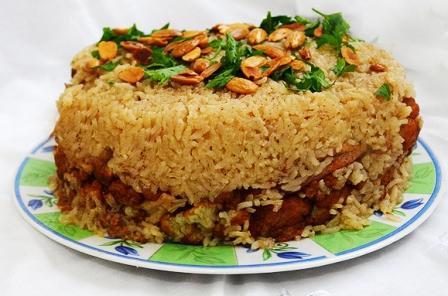Summary | Excerpt | Reading Guide | Discuss | Reviews | Beyond the Book | Read-Alikes | Genres & Themes | Author Bio

This article relates to Salt Houses
 War and political divisions are not the only reasons for people living in exile from their families, but they are often why people must leave in haste and abandon everything behind them. Sometimes homes are destroyed by war or, as with Alia's parents in Hala Alyan's novel Salt Houses, they are occupied following invasion. What can these people take with them even as they are forced to leave all tangible things behind? One thing is the memory of their favorite dishes and, wherever they make their home, they do what they can to reconstruct the classic dishes of their culture, and of their family tradition. Grandmothers and mothers hand down recipes to their daughters, who participate in the rituals and preparations of these foods: they learn how to cook, what spices to use, and what accompaniments to select.
War and political divisions are not the only reasons for people living in exile from their families, but they are often why people must leave in haste and abandon everything behind them. Sometimes homes are destroyed by war or, as with Alia's parents in Hala Alyan's novel Salt Houses, they are occupied following invasion. What can these people take with them even as they are forced to leave all tangible things behind? One thing is the memory of their favorite dishes and, wherever they make their home, they do what they can to reconstruct the classic dishes of their culture, and of their family tradition. Grandmothers and mothers hand down recipes to their daughters, who participate in the rituals and preparations of these foods: they learn how to cook, what spices to use, and what accompaniments to select.
Food plays an important role in Salt Houses and one of the dishes that is mentioned often is Alia's favourite – makloubeh.
Makloubeh, meaning upside down, is a traditional rice dish made with a choice of meat and vegetables. When the dish is ready, the pan it's cooked in is turned upside down on to a platter, creating a mountain shaped dish, that can be shared by a large group. Alia's Lamb Makloubeh would have been something like this recipe, which is taken from Christaine Dabdoub Nasser's excellent book Classic Palestinian Cookery.
Ingredients
In a large pan, brown the meat with onion in the oil or samneh. Add the salt and spices and enough water to cover the meat. Bring to the boil then let it simmer, covered for 60-70 minutes. The amount of time will vary according to the type and cut of meat you use and to the degree you like it done.
While the meat is cooking, fry the cauliflower in a separate pan in 1/2 cup of olive oil until the florets are soft and golden. Let them drain over kitchen paper.
If you are using aubergines (eggplant), peel them and cut them into slices of desired thickness. If you are using small oblong aubergines, just cut them lengthwise in two. Heat the oil in a separate pan and fry them, turning them only once. Place the fried slices on kitchen paper until the meat is ready.
Measure the rice and wash it under the hot water tap. Leave it to drain.
Melt the 1 tbs butter or samneh in a large aluminium pan, add the rice and stir until all the rice is coated with the butter.
Remove half the rice and even out the rice at the bottom, add a layer of the fried cauliflower or aubergine, then and add the chunks of meat, saving the juice. Add the remaining rice and top with a layer of of the remaining vegetables. Measure the liquid of the meat and add enough hot water to make three cups. Pour over just enough of the stock to cover the ingredients.
Bring to boil on a high heat with the pan covered. Taste a spoonful of the liquid to adjust the spices. Lower the heat to medium and cook for 15 minutes. Leave to cook until all the liquid is absorbed. Turn off the heat and let it rest for five minutes before serving.
To serve, run a knife around the edge of the pan, place a platter on top and quickly turn over. Then gently lift the pan off leaving the upside down dish. Sprinkle with the pine nuts and coriander.
Filed under Cultural Curiosities
![]() This "beyond the book article" relates to Salt Houses. It originally ran in May 2017 and has been updated for the
June 2018 paperback edition.
Go to magazine.
This "beyond the book article" relates to Salt Houses. It originally ran in May 2017 and has been updated for the
June 2018 paperback edition.
Go to magazine.
I have lost all sense of home, having moved about so much. It means to me now only that place where the books are ...
Click Here to find out who said this, as well as discovering other famous literary quotes!
Your guide toexceptional books
BookBrowse seeks out and recommends the best in contemporary fiction and nonfiction—books that not only engage and entertain but also deepen our understanding of ourselves and the world around us.